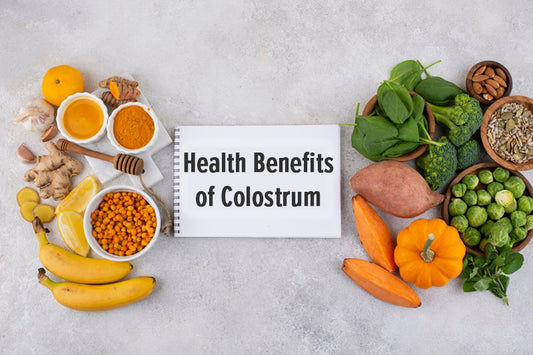In today’s fast-paced world, stress has become an unavoidable part of our lives, and it can significantly affect our blood pressure. From work deadlines to personal responsibilities, it often feels like we’re constantly juggling multiple tasks. While it’s impossible to eliminate stress entirely, we can certainly manage stress better by paying attention to our healthy diet. The saying “you are what you eat” holds true when it comes to our mental well-being and managing stress. In this blog, we’ll explore how certain foods can help calm your mind and reduce stress levels, providing practical tips on incorporating them into your daily meals, all backed by scientific research.
What is Stress?
Stress is a complex physiological and psychological response to challenges or threats, and it can have significant impacts on our overall health and blood pressure. One key aspect of stress is the activation of the body’s “fight or flight” response, which involves the release of stress hormones like cortisol and adrenaline. While this response is crucial for our survival in acute situations, chronic stress can lead to a range of health issues, including anxiety, depression, and various physical ailments.
Breakfast Bliss
Let’s kick off our journey to manage stress and maintain a healthy diet with breakfast, the most important meal of the day.
Oatmeal with Berries:
- A warm bowl of oatmeal topped with antioxidant-rich berries can help regulate blood sugar levels and keep you full longer, preventing unhealthy weight gain. The soluble fiber in oats promotes a feeling of fullness and reduces stress-induced cravings.
- Omega-3 fatty acids found in berries have been linked to reduced inflammation and improved mood regulation, aiding in managing stress.
Greek Yogurt and Honey:
- Greek yogurt is packed with probiotics that support gut health, which has a profound impact on your mood and your immune system. Add a drizzle of honey for a touch of sweetness and relaxation.
- Emerging research suggests that the gut-brain connection plays a crucial role in mood regulation, and probiotics can contribute to a balanced gut microbiome.
Lunchtime Nourishment
Lunch is the perfect opportunity to fuel your body with stress-busting nutrients and maintain a healthy diet.
Salmon Salad:
- Salmon is rich in omega-3 fatty acids, which can reduce inflammation, regulate stress hormones, and help manage blood pressure. Combine it with a variety of colorful veggies for a wholesome and delicious salad.
- Omega-3 fatty acids, particularly EPA and DHA found in fatty fish like salmon, have demonstrated anti-inflammatory effects and are associated with improved mental well-being, helping to reduce stress levels.
Spinach and Chickpea Bowl
- Leafy greens like spinach are high in magnesium, a mineral that aids in muscle relaxation, reduces stress, and can help alleviate anxiety. Pair it with chickpeas for added protein and fiber to manage stress and maintain a healthy diet.
- Magnesium plays a key role in the nervous system and has been linked to reduced stress and anxiety symptoms, benefiting both stress response and overall health.
Afternoon Snacking
When those mid-afternoon cravings strike, choose snacks that won’t send your blood sugar on a rollercoaster ride or lead to emotional eating.
Nuts and Seeds:
- Almonds, walnuts, and pumpkin seeds are packed with stress-fighting nutrients like magnesium, zinc, and vitamin E, supporting your immune system and helping you manage stress effectively. A small handful can provide a satisfying crunch and promote relaxation.
- Magnesium in nuts and seeds helps regulate neurotransmitters associated with mood, and zinc is crucial for maintaining a healthy immune system, which can be compromised during periods of chronic stress.
Dark Chocolate:
- Yes, you read that right! Dark chocolate (70% cocoa or higher) contains compounds that may reduce stress hormones and blood pressure. Enjoy a square or two to satisfy your sweet tooth while calming your mind.
- Dark chocolate contains flavonoids, which have antioxidant properties and may contribute to improved mood and reduced stress levels, supporting your health goals.
Dinner Delights
A nourishing dinner can help you unwind, get a quality sleep, and prepare for a restful night’s sleep, essential for managing stress and maintaining blood pressure.
Grilled Chicken and Quinoa:
- Quinoa is a fantastic source of tryptophan, an amino acid that can increase serotonin production, promoting a sense of calm and quality sleep. Pair it with lean protein like grilled chicken for a well-rounded meal.
- Tryptophan is a precursor to serotonin, a neurotransmitter that plays a key role in mood regulation, helping to reduce stress.
Herbal Tea:
- Sip on a soothing cup of herbal tea like chamomile or lavender after dinner. These teas contain compounds that can help reduce anxiety, improve sleep quality, and manage stress levels.
- Chamomile, for example, contains antioxidants and compounds that can bind to receptors in the brain, potentially reducing anxiety and promoting relaxation, contributing to better sleep and overall stress management.
Mindful Eating Matters
In addition to choosing stress-reducing foods and maintaining a healthy diet, how you eat also plays a role in managing stress.
Eating slowly: Savoring each bite can help manage stress and prevent emotional eating.
Paying attention: Reducing distractions while eating contributes to a mindful eating practice, helping you manage stress.
Engaging in conversation: Enjoying the social aspect of meals can enhance your overall dining experience and reduce stress levels.
Conclusion:
Incorporating stress-relieving foods into your diet is a proactive and delicious way to manage stress, maintain a healthy diet, and promote overall well-being, contributing to public health goals. The science behind it confirms the efficacy of these choices in reducing stress levels and supporting blood pressure regulation By understanding the scientific basis of how these nutrients and foods interact with our body and brain, you can make more informed choices about what you eat to support your mental health. Remember that a balanced diet, combined with other stress management techniques such as regular exercise and mindfulness practices, can help you lead a more relaxed and fulfilling life. So, why not start today—your mind and body will thank you for it, and you’ll be contributing to the promotion of public health.






